Imagine a scenario where the detailed task of writing and executing test cases no longer devours hours of a tester’s schedule. Historically, we have heavily depended on documents for our testing pathways, but this approach often entangled us in version control complexities and collaborative hurdles. Today, we stand at the forefront of a revolutionary change with AgileTest and Enterprise Test Management for Jira. This innovative app heralds a future where we can write and execute a test case in merely 5 minutes, setting a new benchmark in testing efficiency.
Table of contents
What is a Test Case?
In software testing, a test case is a series of actions we execute to check a specific feature or functionality of an application or system. This type of document details the process of entering data, performing actions, and anticipating results to verify the software’s functionality and performance. Essentially, we use test cases to confirm the software behaves correctly. This section will explore test cases, highlighting their critical role in software development and quality assurance.
Objectives of a Test Case
In this section, we will discuss the primary objectives of test cases in software testing. The key goals include validating software features and functions, guiding testers in daily activities, providing a documented record of testing steps for future use, and identifying usability issues and design flaws early in the development process. Moreover, test cases serve as a blueprint for future projects and help in integrating new testers and developers.
Format of a Test Case
The effectiveness of a test case greatly depends on its format. Here, we will outline the standard format for writing test cases, encompassing elements:
- Test Case ID
- Test Scenario
- Test Steps
- Prerequisites
- Test Data
- Expected/Intended Results
- Actual Results
- Test Status
Traditional Test Case Approach
Testers have historically used documents to compose and manage test cases. This method provides clarity, structure, and standardization, allowing any team member to understand and execute test cases easily. It also offers flexibility to adapt documents to specific project requirements.
However, documentation, while beneficial for its clarity and detail, presents drawbacks. The conventional document-based approach often proves time-consuming and fraught with challenges such as version control issues and limitations in collaboration. These challenges have led to the development of innovative solutions like AgileTest and Enterprise Test Management for Jira, which streamline the process, enabling testers to write and execute test cases in just 5 minutes.
So, What’s This AgileTest App?
AgileTest excels as a comprehensive solution, adeptly addressing the challenges of enterprise-scale test management. Specifically designed to satisfy the complex needs of substantial projects, AgileTest delivers a feature suite that champions an adaptive testing approach—vital for the diverse and intricate technologies it engages with. Utilizing AgileTest, organizations can construct robust testing frameworks, ensuring exhaustive coverage and steadfast quality benchmarks, while simultaneously aligning testing efforts with overarching business strategies and development cycles.
Furthermore, AgileTest acts as a strategic asset in software development, where project sizes range from modest to enterprise-level. It adeptly streamlines test management and facilitates swift adaptation to evolving requirements. This suite of features includes comprehensive test scripts, user-friendly test session management, and meticulous reporting. Furthermore, these elements guarantee effective communication and collaboration across QA teams. Additionally, AgileTest’s integration into Jira significantly enhances its utility. It offers an intuitive interface along with powerful tools, essential for efficient test case management and execution. Therefore, these capabilities are fundamental in maintaining exceptional quality standards. They also play a crucial role in fostering a culture of excellence within any organization.
Writing a Test Case with AgileTest
Step 1: Define Requirements
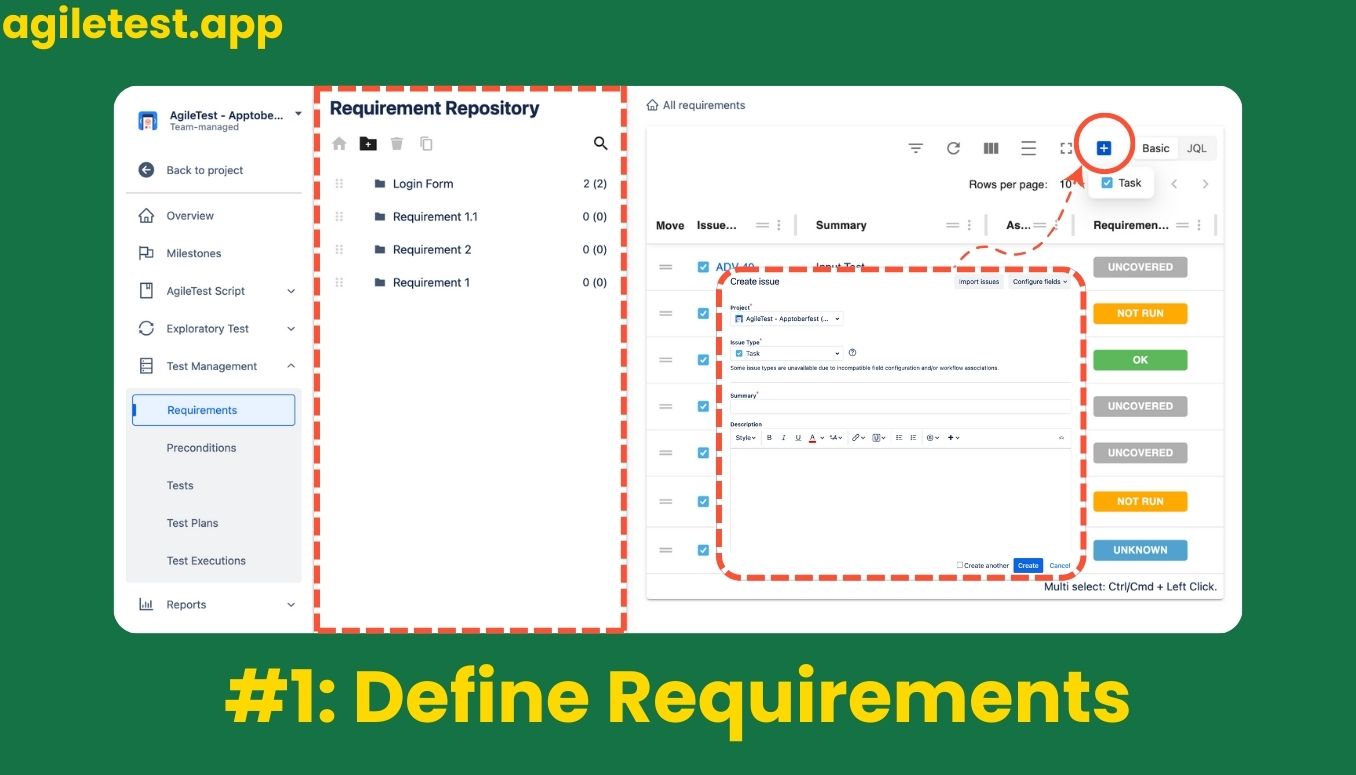
We begin creating a test case by establishing its requirements. AgileTest simplifies this process with a repository section where users can track each feature, resolving the version control issues common in document-based methods.
Step 2: Create Test Case
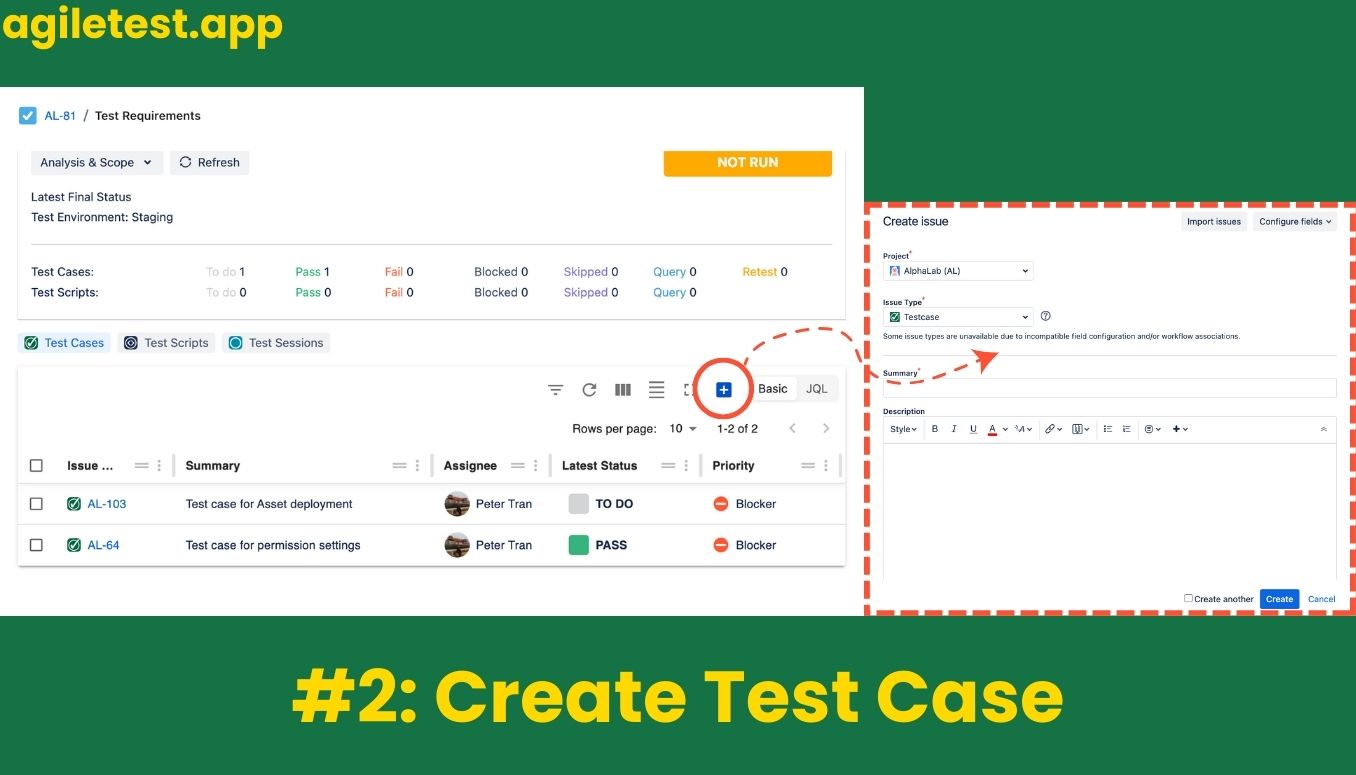
We can navigate to the Test section under the Test Management menu to assign newly created requirements to a use case. Alternatively, we can create a new test case within the requirements to streamline the process further.
Step 3: Add Test Steps and Preconditions
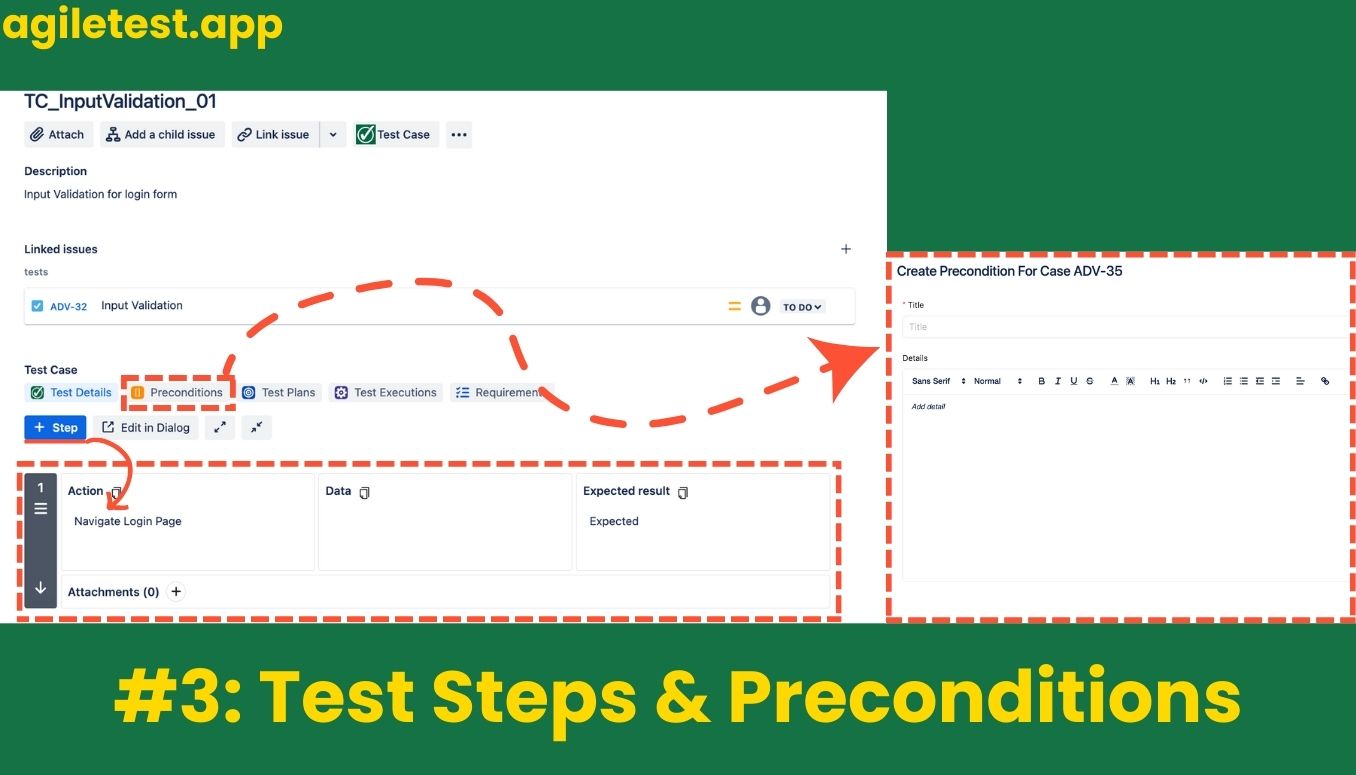
After assigning the requirements, testers can add specific test steps by selecting the test case. AgileTest also simplifies precondition setup, supporting team collaboration and real-time updates.
Executing a Test Case with AgileTest
Step 4: Create Test Plan & Assign Test Cases
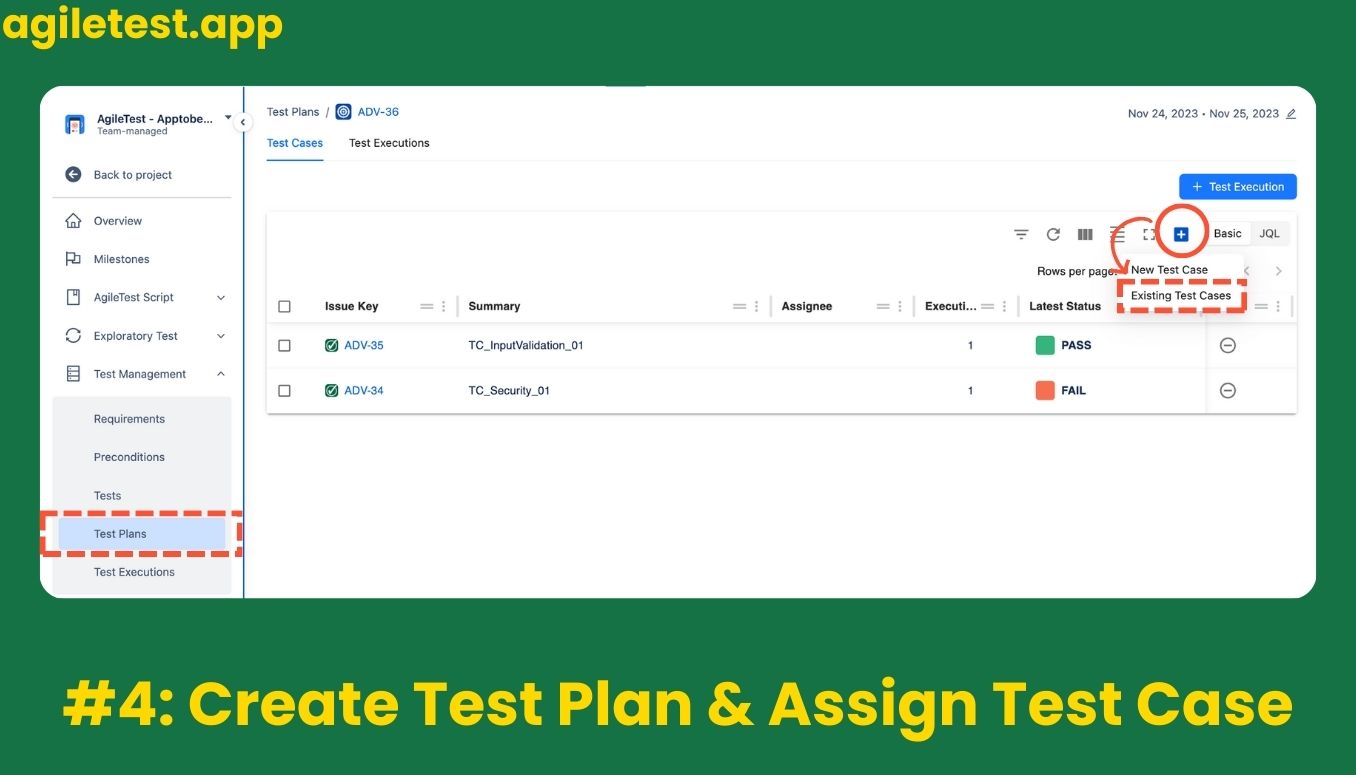
We can create and assign test plans to test cases, which allows for structured and time-framed testing.
Step 5: Create Test Executions
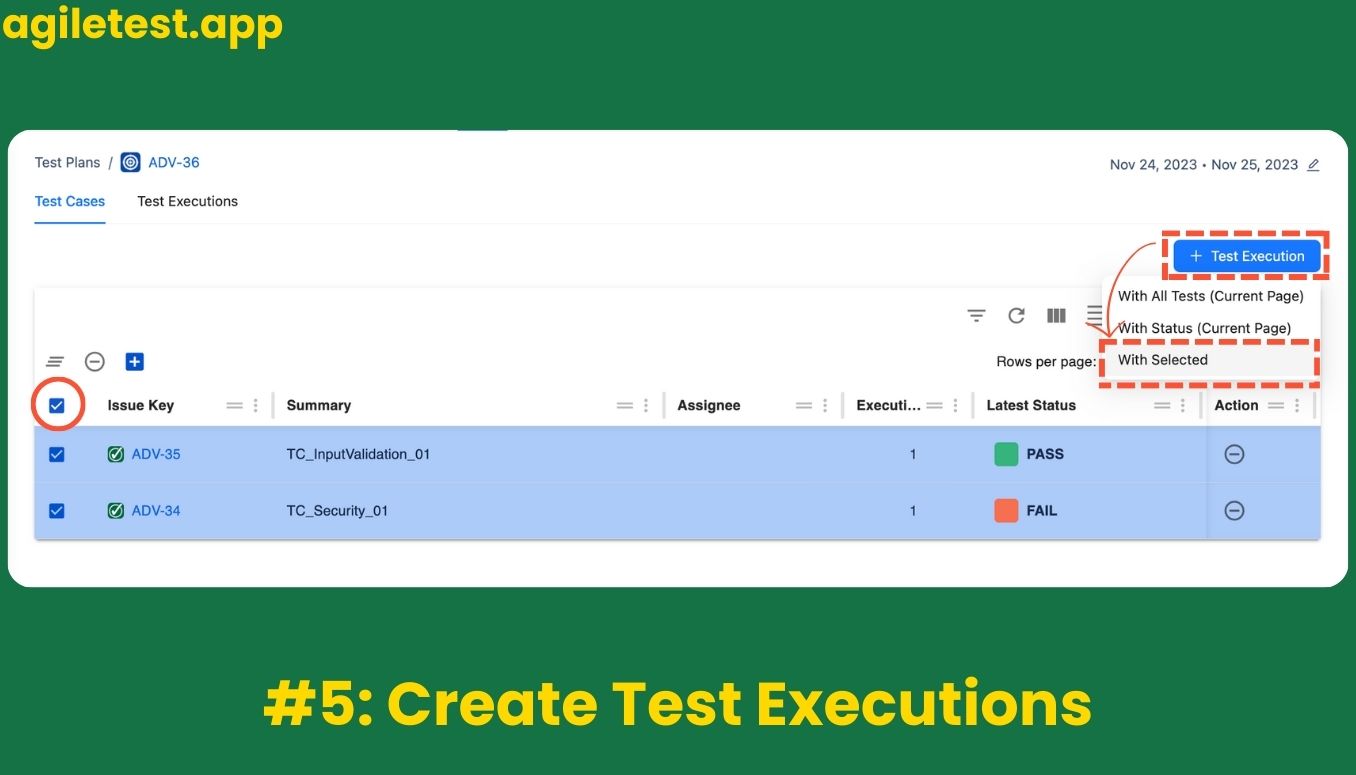
In test plan, users can manage test executions (test runs) within the assigned test cases.
Step 6: Manage Test Executions
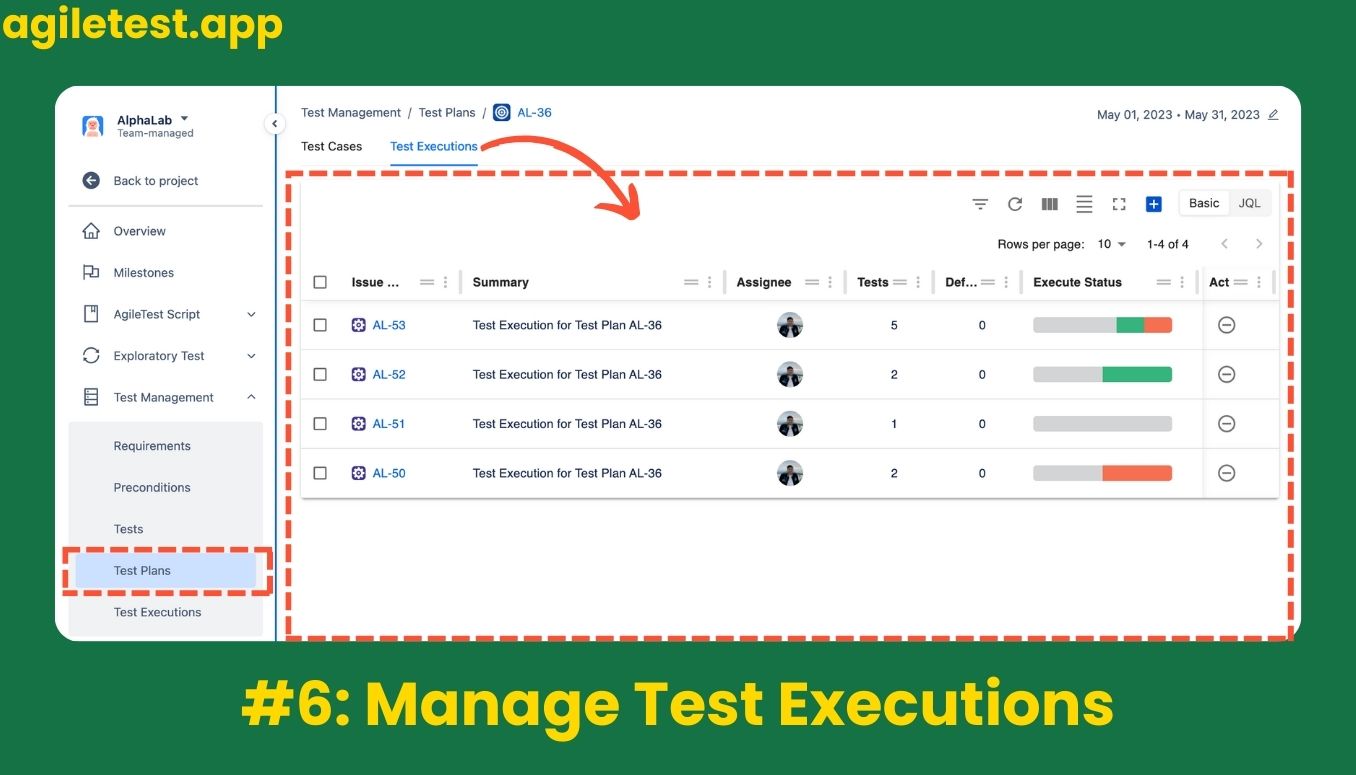
Within the test plan, we can view and manage all test executions, making it easy to monitor the progress and results of each test.
Conclusion
To conclude, this blog introduces AgileTest and Enterprise Test Management for Jira as revolutionary tools, streamlining the test case process in software testing. Addressing traditional test case management challenges, such as version control and collaboration issues, the author highlights AgileTest as a comprehensive, efficient solution for large-scale projects. Furthermore, they detail a six-step process for creating and executing test cases with AgileTest, underscoring its user-friendliness, effective Jira integration, and alignment with business and development strategies. Consequently, this method signifies a major leap in testing efficiency, making AgileTest a key strategic asset in software development.
AgileTest and Enterprise Test Management for Jira have revolutionized the test case writing and execution process. By addressing the disadvantages of traditional document-based methods, they provide a solution that is not only time-efficient but also scalable, supporting projects of any size. This seamless integration of requirements management, test design, execution, and real-time collaboration enables testers to achieve more in less time, ensuring that no testing challenge is too great, regardless of the project scope. With this tool, writing and executing a test case in under 5 minutes is not just possible; it is a reality.
To learn more about Agile, check out this video !
For more information about agile testing, check out more videos from the AgileTest Academy series.
If you love the testing experiences, try our app on the Atlassian Marketplace!




